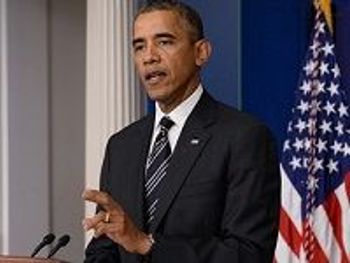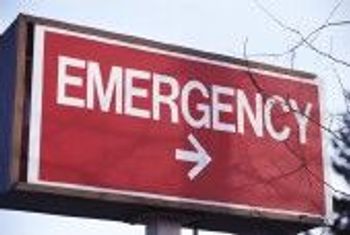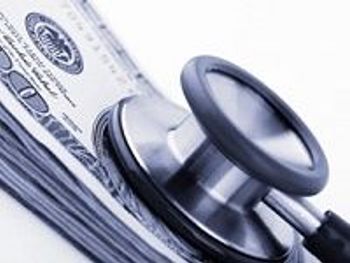
A bill introduced in Congress this week would shorten the 2015 reporting period for the US Department of Health and Human Services' Electronic Health Records incentive program.

A bill introduced in Congress this week would shorten the 2015 reporting period for the US Department of Health and Human Services' Electronic Health Records incentive program.

The number of Americans with no health insurance decreased to 41 million in the first 3 months of 2014, according to a new survey from the Centers for Disease Control.

A coalition of 17 medical associations and trade groups is calling on the US Department of Health and Human Services to amend its reporting 2015 requirements for the Medicare and Medicaid Electronic Health Record Incentive Program.

Employed physicians face a unique set of financial challenges, but a new survey suggests many doctors aren't fully prepared to face those hurdles.

American hospitals reported 38.6 million stays in 2011 and in 24.3 million of those visits, some type of medical procedure was performed (often multiple procedures).

A new study finds narrow health networks can help reduce healthcare costs without impacting the quality of care patients receive.

The US Department of Health and Human Services is sending nearly $300 million to community health centers in an effort to boost access to comprehensive primary care.

An association of state medical boards is hoping to streamline the process for doctors who wish to gain licensure in multiple states.

The rate of uninsured children was already falling before the passage of the Affordable Care Act. A new study finds the ACA hasn't changed those numbers significantly.

Finances, 401(K)'s and investment strategies are likely the first things to come to mind when many working-age adults think about retirement. But a new survey finds retirees think first about a different subject.

US News and World Report is out with its latest list of the top medical schools in the nation. This year marks the 30th time the magazine has ranked American colleges and universities.

Two new studies show how the Affordable Care Act is changing hospital use in the United States. However, the results differ depending on the patient population involved.

A newly released survey shows senior healthcare information technology (IT) executives view analytics as their most pressing IT need.

Employer-sponsored health premiums rose 3% for family plans this year, capping off 5 years of modest growth, according to a new survey from the Henry Kaiser Family Foundation.

A pair of medical experts – one from industry and one from academia – have teamed up to call for a new payment model for expensive gene therapies.

A new study in the September edition of Health Affairs finds American hospitals spend far more on administrative costs than 7 other nations.

The 2014 Provider Compensation and Productivity Report found overall compensation for cardiologists dropped 8% from 2012 to 2013, a decrease attributed in part to a slight decline in productivity.

The US Department of Health and Human Services (HHS) this week announced the winners of $60 million in grants to help consumers find insurance on the government's healthcare marketplaces this year.

Retiring to a warm and sunny climate is the kind of thing most workers dream about. However, the financial feasibility of that dream can depend a lot on which sunny climate you choose.

Doctors have less than a week to review and dispute data regarding their financial interactions with drug and medical device companies before the information is made public later this month.

Forty-five million Americans lacked health coverage in 2012, but that number could fall to 23 million by 2023, if the agency's predictions hold true. The study was published in the September edition of Health Affairs.

Healthcare spending is expected to accelerate over the next decade, but the pace of growth won't match pre-recession levels, according to a new study.

It's no secret that doctors will be in high demand in the coming years. Baby Boomers are retiring and expected to consume more healthcare as they age. The country's working-age population, meanwhile, isn't growing fast enough to keep up.

Pennsylvania's announcement last week that it will expand Medicaid eligibility could hearken a wave of Republican-led states agreeing to a signature facet of President Obama's healthcare law. With the agreement, Pennsylvania became the 28th state (including the District of Columbia) to approve a Medicaid expansion plan since the Affordable Care Act was signed into law in 2010.

A major demonstration project designed to gauge the effectiveness of bundled payments exposed the complications of implementing such a system. Officials say the 3-year study fizzled after participation waned and the number of applicable cases proved too few to be statistically relevant.